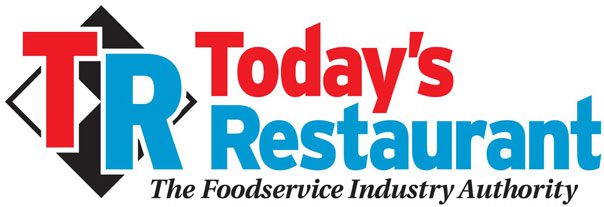
The ABCs of Restaurant Management
By David Scott Peters
Managing a restaurant isn’t just about making sure the lights are on, the guests are served and the money makes it to the bank. Restaurant management is one part art, two-parts systems and training. Let’s break down the ABCs of restaurant management.
4 restaurant management systems to have in place
Let’s look at some essential systems you should have in place and how they can transform your restaurant.
- Inventory management: Track stock levels to prevent any waste or theft. Set up par levels for ordering to make sure you don’t run out of product. Taking inventory makes sure you know what your costs are instantly. It allows you to manage your inventory levels up and down to make sure there’s cash in the bank and not on your shelves, where it is at most risk to be stolen, wasted or spoiled.
- Employee scheduling: Put software in place for employee scheduling to help ensure you have enough team members on your peak hours. The software allows you to allow employees to swap schedules, reducing the burden on management to have to chase everybody down. Yes, you still get to approve those schedule changes and make sure people don’t go in overtime and that you have the right people on each shift, but it allows them to self-manage. Not only can you make sure you go into the week on budget, scheduling your labor daily, but you have the headaches lifted from you from managing people wanting to swap shifts.
- Customer service: Put a system in place to handle customer feedback. This could be a rule that no customer should ever leave your restaurant having a bad experience without a manager talking with them or something more full scale like a feedback system like a form on your website presented when a customer pays their check. Whatever it is, it’s a way for you to gather input from your customers – especially if it’s a complaint – before they hit social media where it can do great damage to your business. Plus if you can turn somebody around in the restaurant from a bad experience to a good experience, you’ve got a customer for life.
- Financial tracking systems: Keep an eye on cash flow and expenses. This means accounting software that integrates with your POS system and your food and beverage software. This allows you to tie everything together to make sure you know the money made it to the bank. You need a good financial reporting system so you can review your report card – your profit and loss statement – and react to any changes in cash flow or expenses.
Training is the key to implementing any of these systems effectively. A well-trained staff is a happy and productive staff, but it’s not enough to provide one-time training sessions. Ongoing training is crucial for long-term success.
Restaurant management systems training
Consider these training modules for your team and how they can be integrated in your daily operations.
- Training for customer service: Train your staff to handle various customer service scenarios. Use roleplaying exercises and real-life examples to prepare them for any situation.
- Training for food safety: It’s not only the law, but also a moral obligation to serve safe food. Ensure that everyone knows the basics of food handling and safety. Regularly update this training and comply with your local health regulations.
- Training on operational efficiencies: Time management and multitasking are skills every restaurant employee should have. Use time tracking software or any project management software, something you can use to keep track of projects and activities. Provide a central place where everything that needs to happen can be found. Track all the tasks and the time allotted to identify any bottlenecks and to improve any kind of inefficiencies.
Having systems in place makes accountability easier. You can track performance, identify areas of improvement and take corrective actions. For example, if your inventory system shows you’re frequently out of stock of any item, it’s time to hold someone accountable and find a solution.
Implement robust systems and training in your restaurant and watch your restaurant thrive.
David Scott Peters is an author, restaurant coach and speaker who coaches restaurant operators how to stop being prisoners of their businesses and to finally financial freedom. His first book, Restaurant Prosperity Formula: What Successful Restaurateurs Do, teaches the systems and traits restaurant owners must develop to run a profitable restaurant. Thousands of restaurants have worked with Peters to transform their businesses. Get his three principles to restaurant success at http://www.davidscottpeters.com.
To read more great articles you can use, visit www.trnusa.com/blog
Want to submit an article? Send text file to info@trnusa.com





Recent Comments